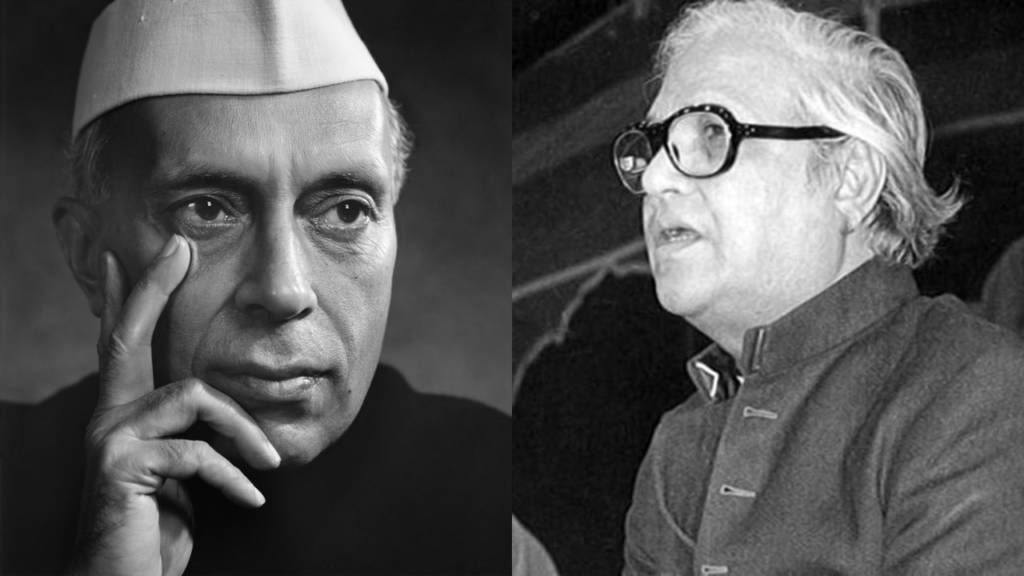If you know the lyrics of the ever famous song ‘Pehla Nasha’, you know very well the lyricist who created such charming songs. Born as Asrar ul Hassan Khan, Majrooh Sultanpuri is one of the most profound poets cum lyricist the Hindustani cinema has ever seen. Teesri Manzil, Yaadon kee Baraat, Qayamat se Qayamat Tak, Jo Jeeta Wahi Sikander, Khamoshi and the list of his exquisite works goes on and on. Today is the birth centenary of the same Majrooh Sultanpuri, who wrote some of the most memorable songs that are popular even today.
Born in Sultanpur, United Provinces [now Uttar Pradesh] on 1 October, 1919, Majrooh Sultanpuri had humble roots to be honest. Not too keen on letting his son have an English education, Majrooh’s father had enrolled him at a madarsa where he became proficient in religious studies, apart from becoming proficient in the languages in Urdu and Persian. Majrooh also earnt Aalim, a degree in Unani medicine. It was then that he changed his name to Majrooh, which means ‘the wounded one’.
However, what set Majrooh apart from the other artists in Bollywood was his no nonsense approach to politics. Despite being associated with Progressive Writers’ Movement, Majrooh Sultanpuri not only attacked the British colonists for their atrocities, but also took India’s first Prime Minister, Jawaharlal Nehru, to the cleaners more than once. At one point in 1951, he recited a poem which compared Nehru to Adolf Hitler.
Aman ka jhandaa is dharti pe
kisne kaha lahrane na paaye
ye bhi koi Hitler ka hai chela,
maar le sathi, jaane na paaye!
Commonwealth ka das hai Nehru
maar le sathi jaane na paae!
(Such unease with our flag of peace! Is it some protégé of Hitler, or a mere slave of the Commonwealth? It’s Nehru, my friends. Take him by the collar lest he gets away)
In this poem, not only did Majrooh accuse Nehru of being a tyrant like Hitler, he also attacked his penchant for the British lifestyle, labeling him a slave of the Commonwealth. Interestingly, he neither revoked his poem, nor did he apologize for the same. Despite being imprisoned in Mumbai for two years with other personalities like actor Balraj Sahni, Majrooh cared two hoots about his condition and he continued composing for the leftist movement and Bollywood.
However, he later grew disillusioned with the cause, which reflected in his verses as well –
“Hum ko junoon kya sikhlate ho, hum the pareshan tumse zyada.
Chaak kiye hain ham ne azizon chaar gareban tum se ziyada.”
Noted journalist Anand Ranganathan elucidated this narrative in a detailed thread, wherein he mentioned as to how the ordeal that Majrooh suffered was just the tip of the iceberg –
2. Majrooh Sultanpuri wrote this poem on Nehru. He was arrested, spent ONE YEAR in jail. https://t.co/MFjxR8Ajfw https://t.co/4y04SAsenx pic.twitter.com/zbZQ315rVH
— Anand Ranganathan (@ARanganathan72) October 22, 2017
Apart from what happened on Majrooh’s anti Nehru poem, another tweet exposed the way Nehru’s Central Government imposed their ideals on the artists of that time, as shown below –
3. THIS was how the Censor Board operated under Jawaharlal Nehru. https://t.co/cnUAq9acUR pic.twitter.com/pF3MlkiSYK
— Anand Ranganathan (@ARanganathan72) October 22, 2017
This was not all. The Central Government under Jawaharlal Nehru also imposed a blanket ban on the 1962 film Nine Hours to Rama, a film that focused on Mahatma Gandhi’s assassination partly through the perspective of his assassin, Nathuram Godse, as shown further through a series of informative tweets by Anand Ranganathan that can be seen here.
These incidents show that Nehru was way more intolerant towards any alternative narrative than other rulers. However, ironically, today’s liberal intelligentsia hails Nehru as an icon of tolerance, who kept freedom of speech and expression above everything else.
Majrooh Sultanpuri was one enigmatic personality. Even though he earned his bread and butter from Bollywood, Majrooh never felt comfortable with his compositions. When asked about his thoughts on the same, he once said, “I never hear my songs. Yeh Hindi film sab nautanki hai (Hindi films are all a farce).” Even then, Majrooh never shied from identifying good talent, and it was he who introduced popular musician RD Burman to Hindi movies, through the movie Teesri Manzil. The duo became an instant hit, and soon RD Burman became a household name.
Majrooh had a long career in Bollywood, composing verses and songs for almost 350 films. If there was a king of versatility in terms of writing songs in Bollywood, Majrooh Sultanpuri was the undisputed champion for sure. He passed away due to a lung infection on May 24, 2000. The nation still misses his brilliant verses, and his unapologetic stance on Indian politics.
